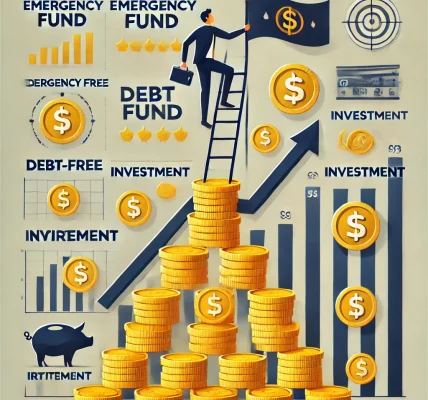Investing is an excellent way to grow your wealth and secure your financial future. However, the increasing number of investment scams poses a significant threat to investors. Fraudsters often use deceptive tactics to lure unsuspecting individuals into fraudulent schemes, resulting in significant financial losses. Understanding these scams and knowing how to protect yourself is crucial.
In this comprehensive guide, we will explore common investment scams, warning signs, and best practices to safeguard your hard-earned money.
Why Investment Scams Are on the Rise?
The rapid advancement of technology and digital transactions has made financial fraud more sophisticated. Some reasons why investment scams are increasing include:
- High demand for quick returns – People seeking high-profit investments become easy targets.
- Lack of financial literacy – Many investors fail to conduct proper due diligence before investing.
- Advancements in digital scams – Fraudsters use technology to create convincing fake websites and schemes.
- Social media influence – Scam artists use social media to promote fraudulent investment opportunities.
Common Investment Scams to Watch Out For
1. Ponzi Schemes
How it works: Ponzi schemes promise high returns with little or no risk. Early investors are paid using funds from new investors, making it appear legitimate until the scheme collapses.
Red Flags:
- Guaranteed high returns with no risk.
- Pressure to recruit new investors.
- Lack of transparency on investment details.
2. Pyramid Schemes
How it works: Similar to Ponzi schemes, pyramid schemes rely on recruitment rather than actual investments. Investors are required to bring in new members to earn profits.
Red Flags:
- Emphasis on recruiting others.
- No actual product or service involved.
- Promises of passive income with minimal effort.
3. Pump and Dump Schemes
How it works: Fraudsters artificially inflate the price of a stock through false or misleading information, attracting unsuspecting investors. Once the price peaks, they sell their shares, causing the stock price to crash.
Red Flags:
- Unsolicited stock recommendations from unknown sources.
- Rapid price increases without legitimate business reasons.
- Claims of “secret tips” or “inside information.”
4. Cryptocurrency Scams
How it works: Fraudsters promote fake cryptocurrency investments, promising massive returns. Some scams involve fake exchanges, fraudulent ICOs (Initial Coin Offerings), or phishing attacks.
Red Flags:
- Unrealistic profit guarantees.
- Lack of verifiable project details.
- Pressure to invest quickly.
5. Fake Investment Platforms
How it works: Scammers create fake investment websites that look professional and legitimate. Investors deposit funds but are unable to withdraw their earnings.
Red Flags:
- No regulatory approval or licensing.
- No clear information about company ownership.
- Reports of users unable to withdraw funds.
6. Advance Fee Fraud
How it works: Investors are asked to pay an upfront fee to unlock a large investment opportunity or prize. Once the fee is paid, the scammer disappears.
Red Flags:
- Requests for upfront payments.
- Vague or unclear details about the investment.
- No written contract or legal documentation.
7. Social Media and Influencer Scams
How it works: Scammers use influencers or fake social media profiles to promote fraudulent investments. Many victims fall for these scams due to the perceived credibility of the promoter.
Red Flags:
- Influencers promoting “too-good-to-be-true” investments.
- Fake testimonials and reviews.
- Lack of official company verification.
How to Protect Yourself from Investment Scams
1. Do Your Research
- Verify the credentials of the company and individuals involved.
- Check regulatory bodies such as SEC (Securities and Exchange Commission) or FCA (Financial Conduct Authority).
- Read independent reviews and testimonials.
2. Avoid Unsolicited Offers
- Be cautious of unexpected investment offers via email, phone, or social media.
- Avoid clicking on suspicious links or sharing personal information.
3. Understand the Investment
- Never invest in something you don’t understand.
- Seek professional financial advice if needed.
- Ask for clear documentation and proof of legitimacy.
4. Be Skeptical of High Returns with Low Risk
- All investments come with risks; guaranteed profits are a red flag.
- Compare returns with legitimate investment options like stocks, bonds, and mutual funds.
5. Use Licensed and Regulated Platforms
- Ensure the investment firm is registered with recognized financial authorities.
- Verify licensing numbers through government websites.
6. Never Share Personal or Financial Information
- Protect your sensitive information from unknown sources.
- Enable two-factor authentication (2FA) on financial accounts.
7. Report Suspicious Activities
- If you suspect fraud, report it to the appropriate financial regulatory body.
- Raise awareness by informing others about the scam.
What to Do If You’ve Been Scammed?
If you’ve fallen victim to an investment scam, take immediate action:
- Report the Fraud – Notify your local financial regulatory authority.
- Contact Your Bank – If you made a payment, inform your bank to prevent further transactions.
- Gather Evidence – Keep records of emails, messages, and payment transactions.
- Warn Others – Share your experience to prevent others from falling into the same trap.
- Seek Legal Advice – Consult a lawyer or financial professional for guidance on recovery options.
Final Thoughts
Investment scams are becoming increasingly sophisticated, making it essential to stay informed and vigilant. By understanding the common fraud tactics, recognizing warning signs, and following best practices, you can safeguard your finances from fraudulent schemes.
Remember, if an investment opportunity sounds too good to be true, it probably is. Stay cautious, do thorough research, and always invest wisely.
If you found this guide helpful, share it with your friends and family to spread awareness about investment scams. 🚀




